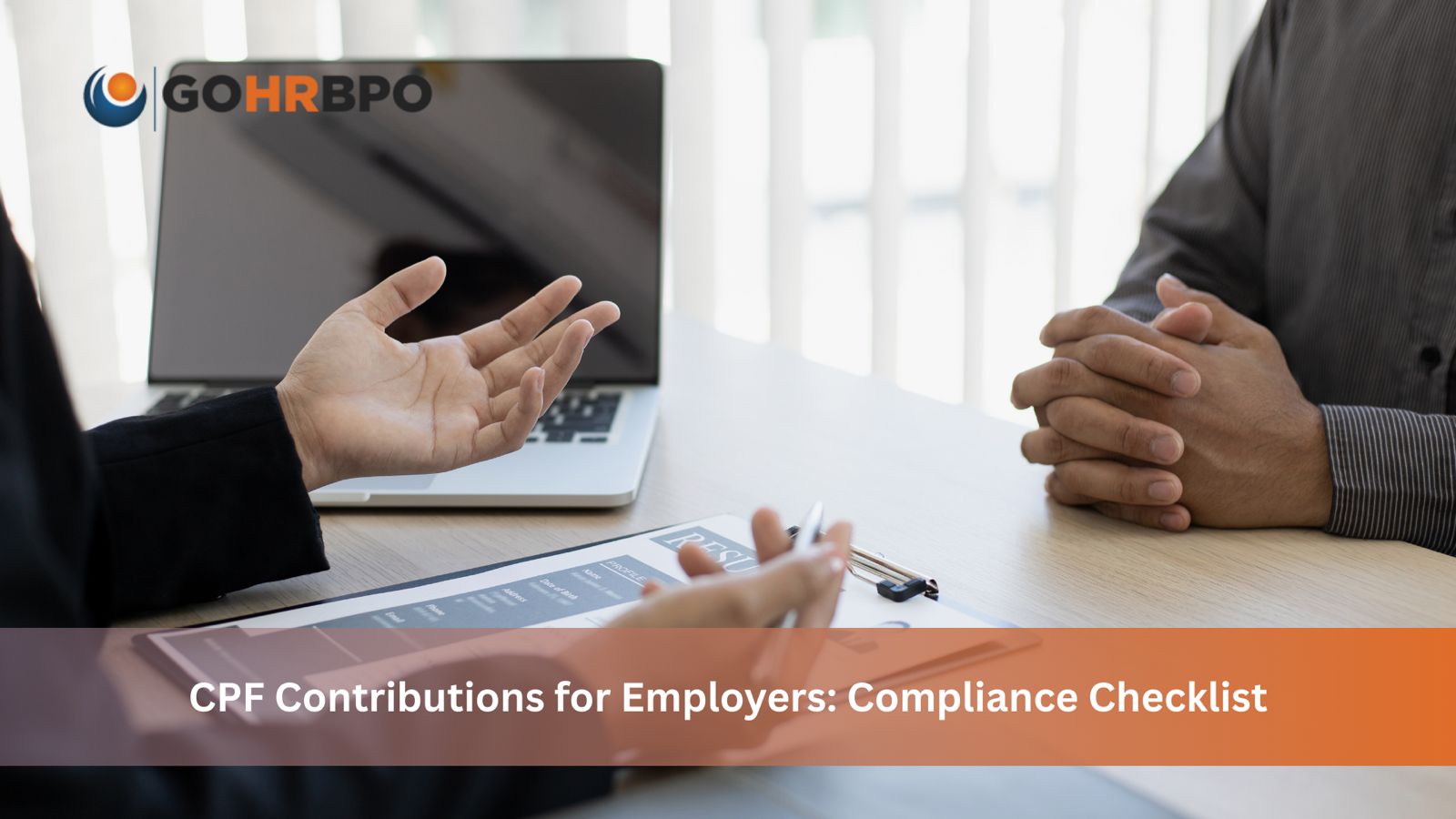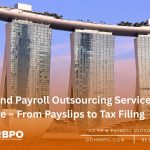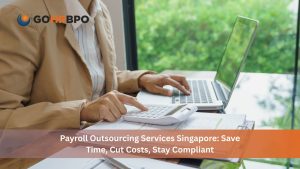Introduction
If you are someone who is running a business in Singapore, then CPF contributions are something that you cannot ignore. They are a legal must-have, and if you get them wrong, they can cost you fines and, in some cases, court trouble as well.
The thing is, CPF can be more complicated than it looks. With CPF, you have to figure out who actually qualifies, what counts as wages, and when payments need to go in.
If you feel like this, you’re not alone. Parliamentary data shows that every single month, about 2800 employers still get CPF contributions wrong or pay them late.
But with a simple checklist and the right systems, this problem will no longer exist. Once you have the whole process in place, compliance becomes much easier than it seems.
Why CPF Compliance Matters
CPF is Singapore‘s national savings scheme. It helps employees cover big life needs like retirement and healthcare.
As an employer, you have to contribute for every Singapore citizen and PR who earns more than S$50 a month.
These rates depend on age. For anyone under 55, the total CPF contribution is 37% of wages. It is 17% from you, the employer and 20% from the employee.
This percentage starts dropping as employees get older. For instance, in 2025, it will be 32.5% for those who are between 55 to 60 years of age.
Mistakes here can get expensive. To prevent any such mistake, you need to have a proper plan in place.
The Employers CPF Compliance Checklist
Here is a simple step-by-step guide. Every employer should follow:
| Step | What You Need to Do | Why It Matters |
| 1. Register for a CPF Submission Number (CSN) | Apply online before hiring locals | Without CSN, you cannot make CPF contributions |
| 2. Identify Eligible Employees | All SC/PR employees earning > S$50/month (full-time, part-time, casual) | Avoid missing staff categories like part-timers or interns |
| 3. Declare Contributable Wages | Include salaries, allowances, and bonuses | Misclassification leads to arrears |
| 4. Calculate Contributions | Apply correct age-based rates and ceilings | Ensures accuracy and avoids underpayment/overpayment |
| 5. Meet Deadlines | Submit and pay by the 14th of the following month | Prevents 1.5% monthly late interest charges |
| 6. Pay SDL & SHG Funds | SDL (0.25% of wage) + SHG deductions | Often overlooked but mandatory |
| 7. Provide Itemised Payslips | Show CPF deductions clearly | MOM requirement builds transparency |
| 8. Keep Records | Store CPF statements and receipts | CPF inspectors can audit at any time |
| 9. Stay Updated | Monitor CPF rate changes (ceilings rising to S$8,000 by 2026) | Rules change regularly |
| 10. Rectify Mistakes Quickly | Voluntary adjustment if underpaid | Proactive correction avoids heavier penalties |
Also Read: The Role of AI Chatbots in Enhancing User Experience
Common Pitfalls SMEs Face
Even if you are cautious enough, there are a few CPF mistakes that can trip up employers again and again:
- Missing deadlines: Contributions are mainly due by the 14th of the next month. If you miss it, even by a single day, you are hit with 1.5% interest.
- Cash flow issues: If your GIRO account does not have enough funds, and if the deduction fails, your compliance will fail as well.
- Missclassifying wages: If you mistakenly, miss misclassify wages, or leave bonuses or commissions out of CPF by mistake, it can be a trouble for you.
- Ignoring rule changes: CPF rates and rules change often with age groups and ceilings. If you miss an update, it can cause underpayments.
- Poor documentation: If you don’t keep proper records, it can make your audits stressful and risky. So I suggest always keeping a record of everything in a proper way.
To show how serious this is, back in 2016, the state court convicted 350 employers for CPF offences, and the most common reason was late or missed contributions.
Penalties for Non-Compliance
The penalties for non-compliance can be pretty harsh:
- Interest: If you miss your payment by even a day, you will get an interest of 1.5% per month, with a minimum of S$5.
- Composition fines: You may have to give a composition fine of up to S$1000 for each offence.
- Court penalties: There is up to S$5000 per offence or six months of jail for first-time offenders. It doubles if that offence happens again.
- Reputational damage: Names of guilty employers get published on the CPF board’s list. This is the last kind of publicity any business wants.
Also Read: 8 Reasons to Consider Payroll Outsourcing in Singapore
How Payroll Tools and Outsourcing Help
Handling CPF manually is very difficult. That is why more SMEs are preferring software or outsourcing. Here is how it helps:
- Automating calculations: The system keeps itself updated with changing rates and ceilings. This way,y you don’t have to worry about any manual error happening.
- Generating E submission files: With proper payroll tools, everything is formatted well for you and ready to go straight into CPF EZPay.
- Sending deadline reminders: If you are using a payroll tool, the system will keep reminding you about your submissions before payments are due. This way, you will not be struggling at the last minute.
- Keeping records: Digital statements are stored neatly with the use of proper tools, which makes the audit less stressful.
Many SMEs now outsource payroll completely. This way, providers deal with CPF, IRAS, and MOM in the right way, so accuracy is not left to chance.
In fact, even the most organised businesses benefit from outsourcing, because the rules change often and missing an update is very easy.
Conclusion
At the end of the day, CPF compliance means getting the amounts right while paying on time and keeping proper records. If you stick to this checklist, you won’t have to worry about penalties, and your employees will feel secure, knowing their savings are taken care of.
For most SMEs, the simplest way is to mix discipline with a little help, that is, using software or outsourcing. This way,y compliance won’t be a problem for you.
My advice? Follow the checklist and let the CPF take care of itself in the background, while you get loads of time to do the work you actually need to do.






